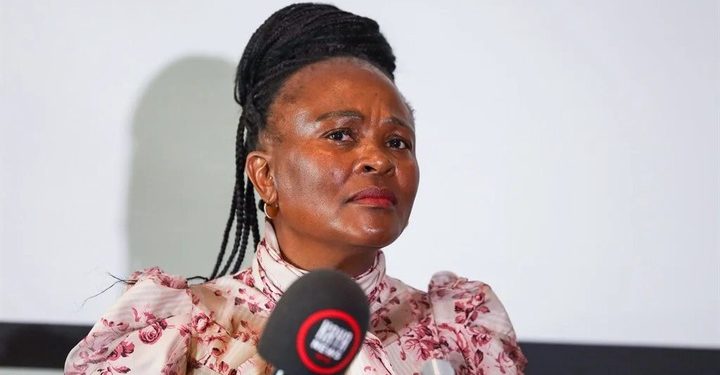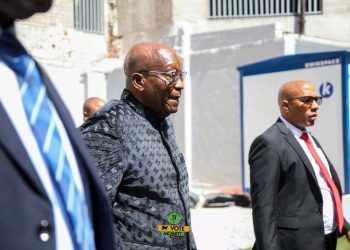Former Public Protector Busisiwe Mkhwebane is expected to appear in the Pretoria Magistrate’s Court this morning as her long-running perjury case continues.
Mkhwebane has been facing criminal charges since 2019, stemming from allegations that she lied under oath in her 2017 report concerning the South African Reserve Bank’s controversial bailout of Bankorp during the apartheid era. The case has attracted public attention not only because of the accusations but also due to Mkhwebane’s role as a former Chapter Nine institution head, tasked with upholding the highest standards of accountability.
At the centre of the matter is her investigation into a 1980s bailout that saw the Reserve Bank provide financial support to Bankorp, later acquired by Absa. In her findings, Mkhwebane recommended that Parliament amend the Constitution to change the Reserve Bank’s mandate, sparking criticism from legal experts, the banking sector, and government. Her conclusions were later overturned by the Constitutional Court, which found that she had acted in bad faith and exceeded her powers.
The National Prosecuting Authority (NPA) subsequently charged her with three counts of perjury, accusing her of making false statements under oath related to the case. If found guilty, Mkhwebane could face a fine or imprisonment, depending on the court’s ruling.
Mkhwebane has consistently denied wrongdoing, arguing that the charges are politically motivated and intended to tarnish her reputation. She has maintained that her actions were in line with her constitutional duties as Public Protector at the time.
Her legal troubles come after a turbulent career in public office. In 2023, she became the first Public Protector in South Africa’s history to be impeached by Parliament, following a drawn-out inquiry into her fitness to hold office. The inquiry concluded that she had repeatedly acted incompetently and dishonestly during her term.
Today’s court appearance is part of ongoing proceedings that have been postponed multiple times since the case began. Legal experts suggest that the drawn-out nature of the trial reflects the complexity of the charges, as the prosecution must prove beyond reasonable doubt that she knowingly lied under oath.
For the public, the case is symbolic of broader questions about accountability in South Africa’s democratic institutions. As someone once entrusted with defending citizens against abuse of power, Mkhwebane’s trial is seen as a critical test of whether the rule of law applies equally to everyone, regardless of position.
The Pretoria Magistrate’s Court is expected to hear further arguments today, with the defence likely to continue its push to have the charges dismissed.






















